Exfoliating your skin??
4

Our customer service team in the US is ready to assist you.
Monday - Friday
7 AM – 4 PM PT
Saturday
7 AM – 4 PM PT


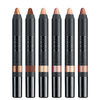
Nudestix Nude Beach 6-Piece Eye Pencil Palette
$69
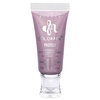
Danessa Myricks Beauty ColorFix 24-Hour Cream Color Matte Sundaze
$20
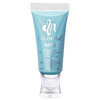
Danessa Myricks Beauty ColorFix 24-Hour Cream Color Matte Oasis
$20
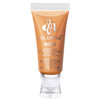
Danessa Myricks Beauty ColorFix 24-Hour Cream Color Matte Dreamsicle
$20
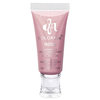
Danessa Myricks Beauty ColorFix 24-Hour Cream Color Matte Bunny
$20
Please help us maintain positive conversations here by following our guidelines below.
We reserve the right to remove comments and topics that don't adhere to the following rules. We also may remove the profile of any repeat offender. Thanks for reading and contributing!
Beautylish is a diverse, positive, and respectful community. It’s okay to disagree with someone, but be constructive—not rude. We have a zero-tolerance policy for negativity and harassment.
Take the time to make posts easy to understand by using proper spelling, grammar, and capitalization. Post topics in the appropriate category and refrain from making duplicate posts. Know that we don't allow self-promotion, advertisements, spam, commercial messages, or links to other websites or blogs. And be careful that you don't post someone else's work and present or claim it as your own.
We reserve the right to remove duplicate, miscategorized, and difficult-to-understand posts, or those we deem as advertisements, spam, or plagiarism.
Use the flag button to report inappropriate or disrespectful behavior, or email us at help@beautylish.com.
Aug 26, 2016
Lauryn E.
Hello! I've heard a lot of people on here on tips for getting clearer skin to exfoliate their skin, and I'm not too sure what that means. If anyone could help out with what exfoliating your face is, that would be great!
Aug 26, 2016
Lara R.
To exfoliate means that, either by a physical or chemical exfoliant, you are removing dead cells from your skin. The results are even texture, unclogged pores, brighter complexion and help dry skin types because it allows moisturizing products to be more effective.
To choose the right exfoliant for you, it's helpful to know what are your needs and what skin type you have :)
Aug 26, 2016
Leuca S.
Lara's correct. In order to give you accurate recommendations for how you should approach exfoliation, we need to know what you still need out of your skincare routine.
However, in the interest of giving you the basics of chemical exfoliation, here's something from a comment I put in another thread.
There are two types of "exfoliation" per se: chemical and manual. Manual exfoliation is simply you physically doing something to remove skin cells from the surface of the epidermis. The largely superior form of exfoliation when it comes to treating more serious skincare concerns is chemical. Typically you will find these in two primary forms, AHA (alpha hydroxy acid) and BHA (beta hydroxy acid). Unless you are looking to work with medical grade chemical peels (which those two can be used in with higher concentrations), you don't need to worry about the other kinds that are available. Chemical exfoliation is superior to manual exfoliation in most cases because it is just that: a chemical reaction. It causes a cascading effect through your skin, loosening dead skin on the surface while encouraging your skin to produce new cells underneath at the same time, something manual exfoliation largely will not accomplish nearly as effectively.
AHA will appear on labels as either glycolic acid (most common, generally easier to formulate) and lactic acid (which can arguably hydrate the skin a little more). AHAs are water soluble, and will exfoliate the surface of the skin. Because AHAs are water soluble, they largely lack the ability to cut through sebum, which makes them ill suited for preventing/treating acne unless the reason is simply lack of surface exfoliation to begin with. AHAs have minor humectant properties, meaning that they can attract moisture to the skin as they exfoliate it, making them typically preferred by those with dry skin who are not prone to acne.
BHA appears as salicylic acid. BHA is oil soluble, which means that on top of exfoliating the surface of your skin, it has the ability to cut through sebum and get into your pores, encouraging healthy skin cell turnover. It is an antibacterial agent even in lower doses, which allows it to fight acne in multiple ways. In lower percentages typically seen in over-the-counter products, BHA also has anti inflammatory action, as it's chemically related to aspirin (BHA is salicylic acid, and aspirin is acetylsalicylic acid). Aspirin however, does not have the same ability to treat acne, as it lacks any exfoliating/antibacterial properties. Because BHA cuts through sebum, people who use it without supplementing their routines with anything to compensate may find it drying, but this is not the ingredient in itself actually removing moisture from the skin.
Aug 26, 2016
Lauryn E.
Thank you so much!